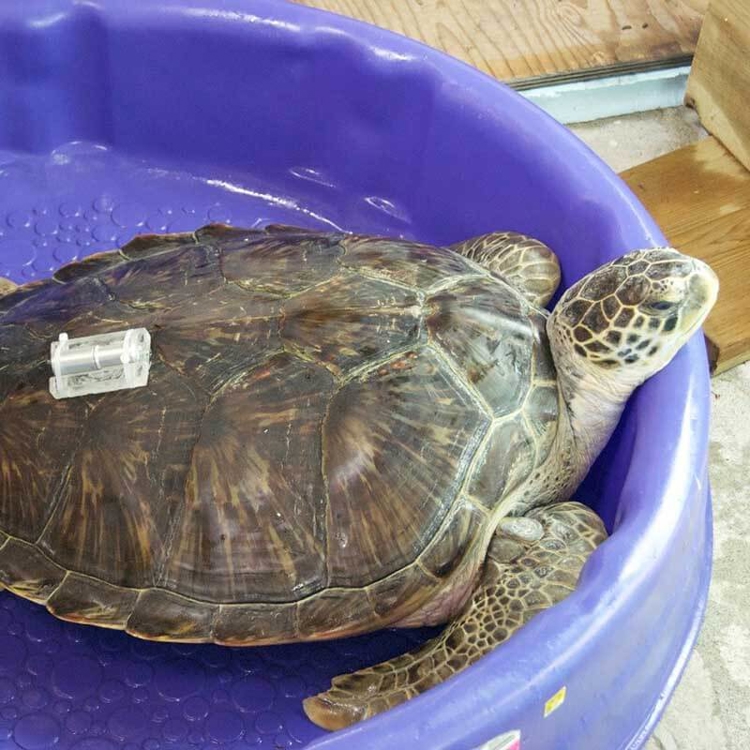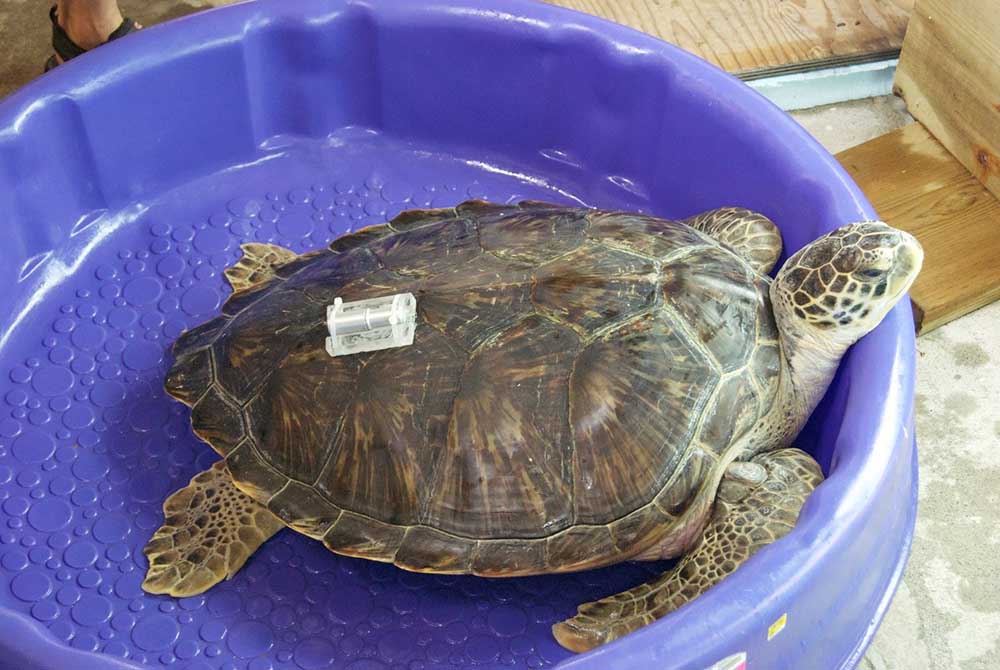
Staff: Prof. Lewis Halsey, Dr Andrea Perna, Dr Daniel Perkins, Dr Chris Tyler, Dr Emily Watkins
All animals, including humans, expend energy for every action by their body big or small, from pumping protons across cell membranes to contractions of the heart to locomoting over a landscape. Energy availability is finite and so how and when animals expend it can have important implications for their adaptiveness to an environment and ultimately their reproductive fitness. This long-term project explores variations in energy expenditure in a multitude of ways, including energy compensation/competition in response to chronic increases in activity levels, putative increases in metabolic rate at resting in response to exposure to high ambient temperatures, and differences in the degree of within-sex variation in energy expenditure (testing the ‘greater male variance hypothesis’).

Accelerometry data loggers instrumented to green turtles, to measure their swimming energy expenditure
